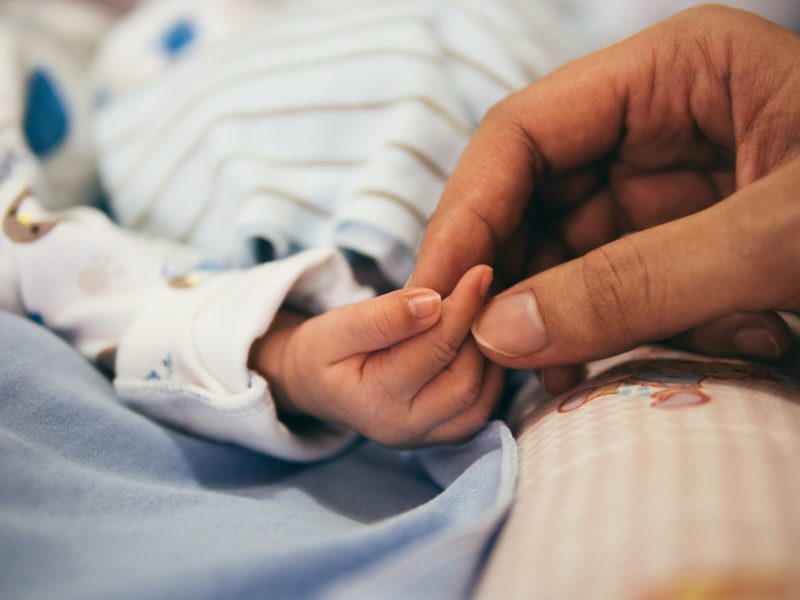
For millions of women, giving birth is a momentous occasion filled with a host of emotions — joy, sadness, happiness, fear, worry, hope. For many of these women, these feelings are navigated at a typical pace, dealt with over the weeks and months that follow as they settle into motherhood. Many other women, however, experience a traumatic childbirth that clouds every moment of their days, impacts their ability to bond with their child, and negatively alters their well-being. Targeted mental health treatment can help them heal.
Understanding PTSD After a Traumatic Birth
There is more to the “baby blues” for some mothers than the weeks it typically takes to get past fluctuating hormones, sleep deprivation, and the physical toll of childbirth. Women who experience a traumatic childbirth can develop post-traumatic stress disorder, commonly known as PTSD, which can cause them to have flashbacks, anxiety, depression, and other mental health complications.
What is considered a traumatic birth? There are many possibilities:
- You were in labor for a very long time and then needed an emergency C-section.
- The baby was in distress during delivery and suffered health problems as a result.
- You experienced bad side effects from an epidural or pain medication.
- The pain of birth was so extreme that you cannot forget it.
- You needed a C-section when you were counting on a vaginal birth.
- You envisioned a peaceful birth but it turned into a loud, rushed, terrifying experience.
- You were anxious the entire time even though your baby was born healthy and everything went fine.
All birth trauma is valid. It doesn’t need to fit into one of the categories above. What you experienced is unique to you – and what one woman might classify as trauma, another might not. Some women have flashbacks about their baby’s birth – whether it was a good or bad birth experience. Others worry that they didn’t go through “enough” to make their trauma valid.
You are entitled to your feelings. And acknowledging them is incredibly important. When you are having trouble dealing with the aftereffects of childbirth, you are likely suffering from PTSD, and you can give yourself permission to seek help for your condition.
The Onset of PTSD After a Traumatic Birth
For the mother who has experienced a traumatic birth, it doesn’t matter if there was a problem or emergency in the labor and delivery room. Everything that occurred was very real to her and could have impacted her mental health. Birth trauma is, simply enough, distress experienced by a mother during or after childbirth. This trauma can be physical, but it is most often psychological and emotional.
Some women don’t develop birth trauma complications until after childbirth, when they are home with their baby and settling into a new life months after they physically gave birth. There is no way to predict how a body and psyche will react after birth – and there is no shame if you are a person who struggles to cope after the arrival of your infant.
You may go on for months feeling like you’re just fine, that everything is great. You delivered a healthy, strong baby who is thriving. Then, all of a sudden, you are the one who is not thriving. You are immobilized, depressed, terrified, panicky, anxious, and worse. The anniversary of your child’s birth can cause flashbacks. The impending birth of another baby can have you living in terror.
Often, mothers who suffer birth trauma and PTSD from it experience a lack of support – whether they were left on an operating table alone and shaking while medical teams tended to their baby, or whether everyone was focused on the cute bundle of joy instead of asking about her feelings and recovery.
Inpatient Mental Health Treatment for PTSD After Birth Trauma
In mental health treatment for PTSD after a traumatic birth, women will receive caring, communication, and a return to dignity after the unwanted experiences they suffered. Processing the birth experience is an essential part of therapy in inpatient treatment. And while many mothers will not want to leave their families for any length of time to tend to themselves, know this: When you get healthy and heal your mind and heart, that will allow you to be present for your child permanently. And that is a bigger gift to them than you being there every second of every day while suffering.
In inpatient treatment, postnatal or postpartum PTSD is approached like other types of PTSD, through psychological counseling, emotional support, therapy, medication, and alternative therapies. At Beachside Rehab, we invite you to invest in self-care while you heal, through treatments like spa services, yoga, holistic therapies, exercise classes, and more.
Consult with a medical professional at a holistic treatment center like Beachside Rehab. Contact our trained admissions counselors at 866-349-1770 to discuss ongoing recovery support.
